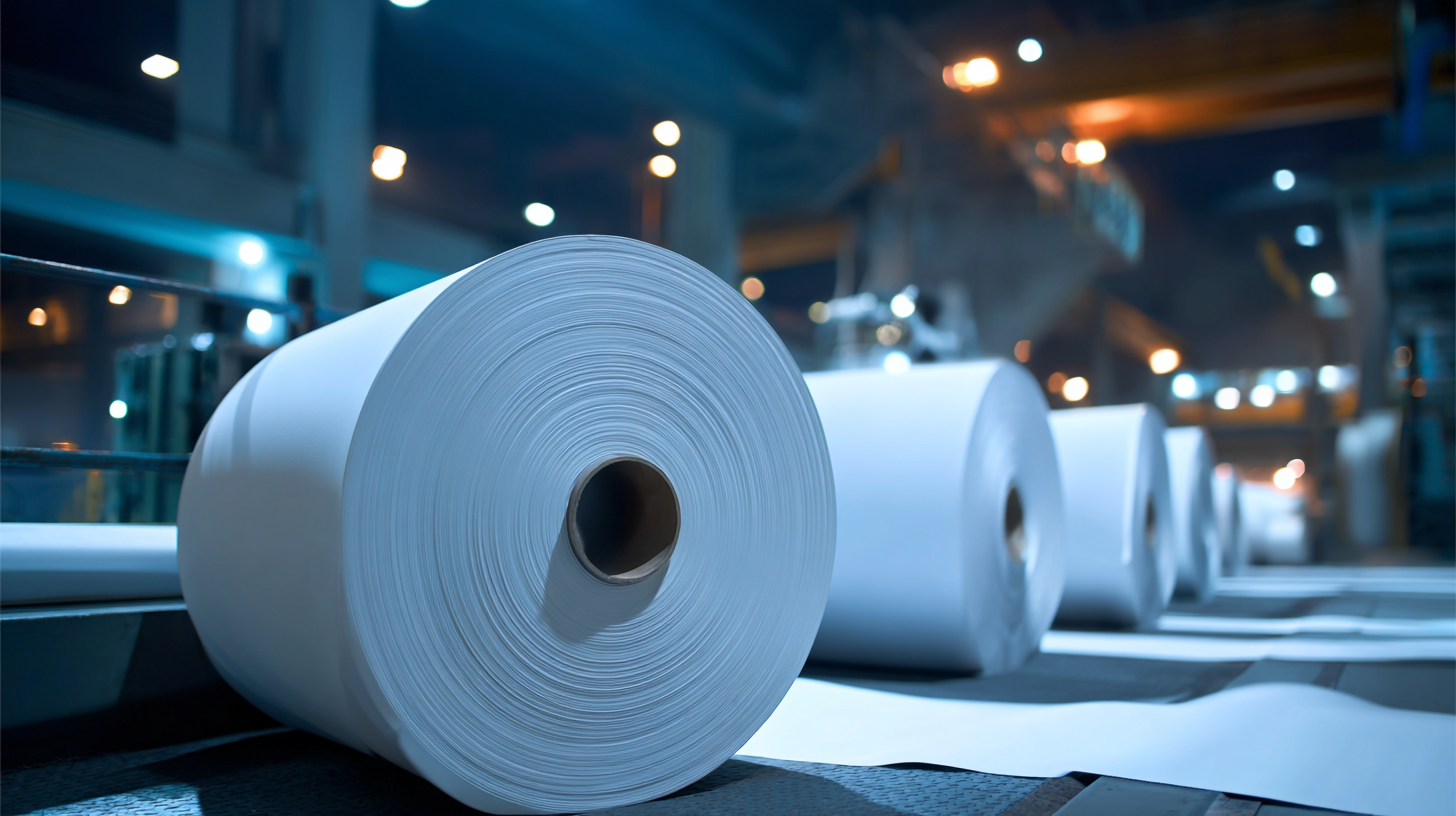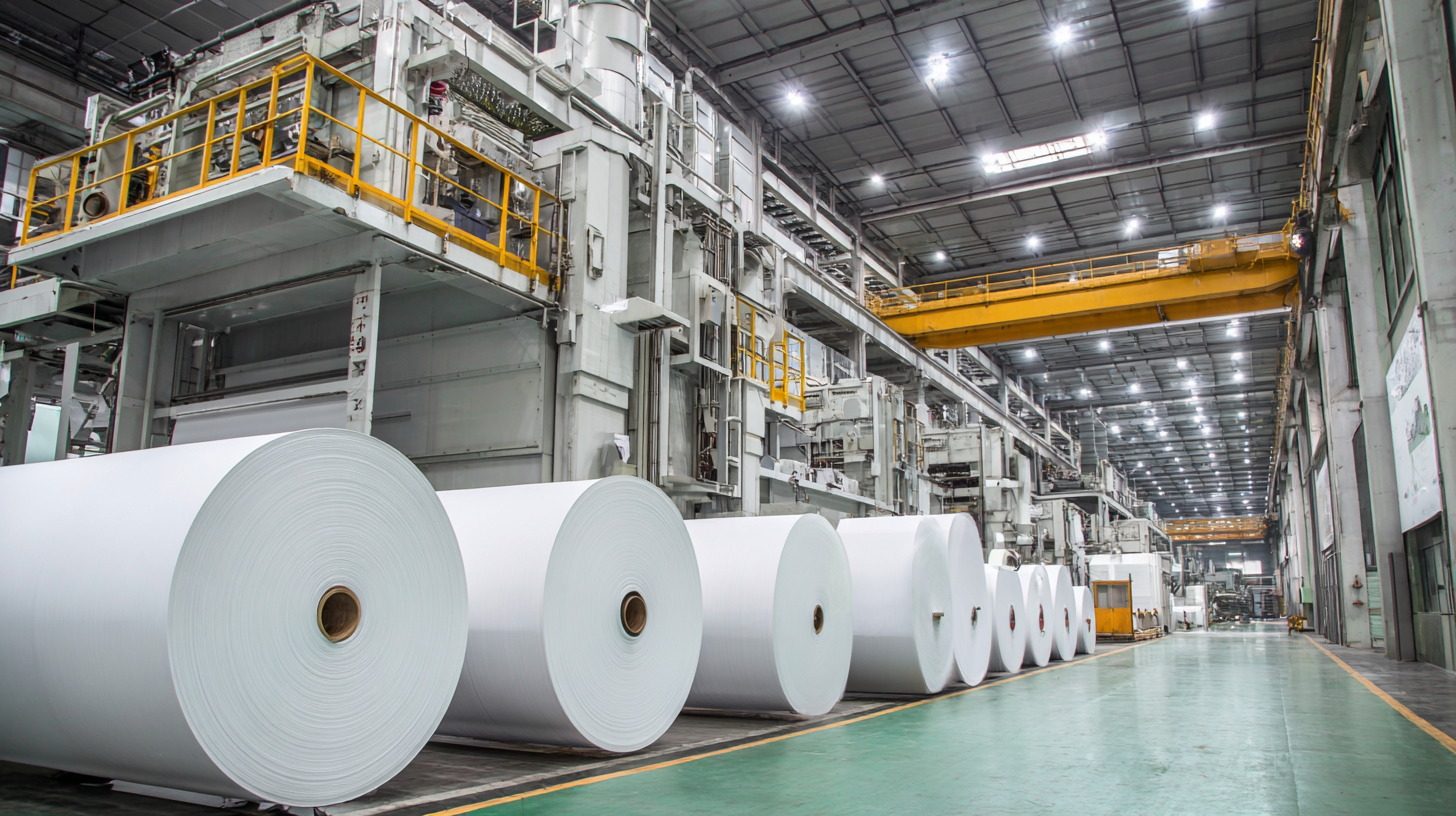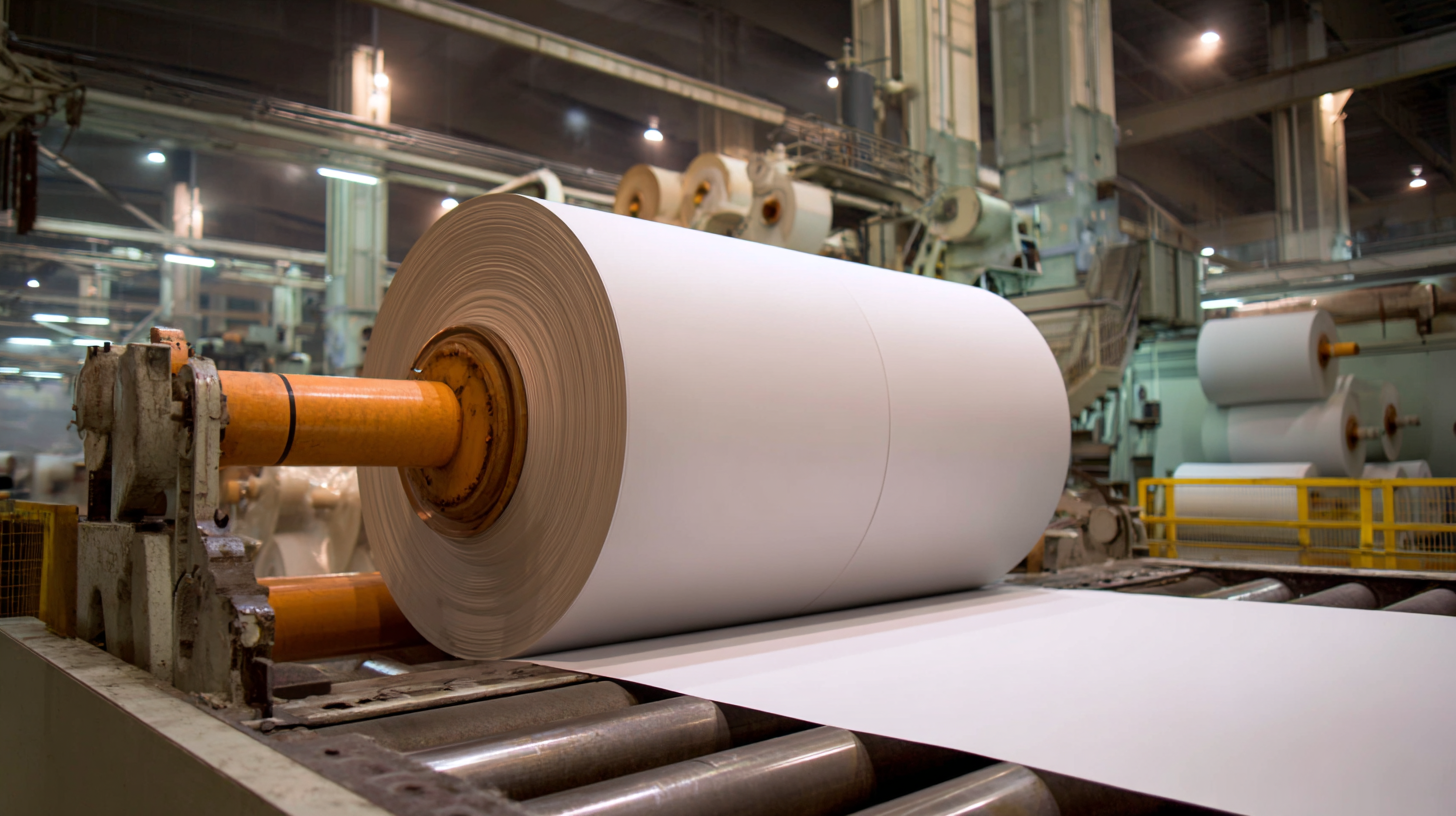 In an era where sustainability and quality are paramount in global business partnerships, China's offset paper manufacturing stands at the forefront, embodying excellence and innovation. As an essential material in various industries—including publishing, packaging, and stationery—offset paper plays a crucial role in enhancing brand visibility and communication. With advanced technology and stringent quality controls, China's top-tier factories are not only capable of meeting international standards but are also committed to environmentally friendly practices.
In an era where sustainability and quality are paramount in global business partnerships, China's offset paper manufacturing stands at the forefront, embodying excellence and innovation. As an essential material in various industries—including publishing, packaging, and stationery—offset paper plays a crucial role in enhancing brand visibility and communication. With advanced technology and stringent quality controls, China's top-tier factories are not only capable of meeting international standards but are also committed to environmentally friendly practices.
This blog will explore how these manufacturing giants leverage their expertise to forge trusted partnerships around the world, demonstrating that their products are not just commodities, but integral components of successful business strategies. Join us in discovering how China's offset paper industry is setting new benchmarks for quality, reliability, and sustainability on a global scale.
China's offset paper industry has seen remarkable growth, positioning itself as a key player in global markets. The combination of advanced manufacturing techniques and competitive pricing has attracted businesses around the world seeking reliable paper supplies. This rise can largely be attributed to China's strategic investments in technology and sustainable practices, allowing manufacturers to offer high-quality products while minimizing environmental impact.
For companies looking to engage with Chinese offset paper manufacturers, it's essential to focus on building strong partnerships. Establish clear communication channels to ensure alignment on expectations and quality standards. Regular visits to manufacturing facilities can foster trust and provide insights into the production processes. Additionally, consider sourcing samples to assess the quality firsthand before making larger commitments.
As the demand for eco-friendly paper products rises globally, manufacturers in China are increasingly adopting sustainable practices, such as using recycled materials and reducing waste. Businesses should prioritize suppliers who demonstrate a commitment to sustainability, as this not only contributes to environmental conservation but also aligns with the growing consumer preference for green products. Engaging with manufacturers that value sustainability can enhance your brand's reputation while supporting a responsible supply chain.
| Year | Production Volume (Million Tons) | Export Volume (Million Tons) | Market Share (%) | Major Export Markets |
|---|---|---|---|---|
| 2018 | 15.0 | 5.0 | 20 | USA, Japan, Europe |
| 2019 | 16.5 | 6.5 | 22 | USA, South Korea, Australia |
| 2020 | 18.0 | 7.2 | 24 | USA, Middle East, Europe |
| 2021 | 19.5 | 8.0 | 25 | USA, Japan, India |
| 2022 | 21.0 | 8.7 | 27 | USA, Africa, Southeast Asia |
In the ever-evolving landscape of paper manufacturing, China's premier offset paper manufacturers are leading the charge with innovative technologies that enhance operational efficiency. These advancements not only streamline production processes but also reduce waste, fostering a more sustainable approach to paper production. From automation in printing to precision cutting mechanisms, these technologies empower manufacturers to produce high-quality offset paper at scales that meet the demands of global business partnerships.
Moreover, the integration of smart technologies such as IoT and AI is revolutionizing the way paper manufacturers monitor and manage their processes. Predictive analytics allow companies to anticipate maintenance needs, minimizing downtime and ensuring consistent output. Additionally, real-time data collection contributes to better decision-making, giving manufacturers a competitive edge in the market. As the demand for environmentally friendly and efficient products increases, China's commitment to leveraging these innovative technologies positions it as a key player in the global paper industry.
In recent years, China's offset paper manufacturing sector has made significant strides towards sustainability, aligning with the global push for eco-friendly practices. The adoption of advanced technologies and stricter environmental regulations is essential in reducing the carbon footprint of paper production. According to various industry reports, implementing eco-resilient practices can substantially lower embodied carbon emissions in manufacturing processes. For example, leveraging renewable energy sources and enhancing energy efficiency can dramatically improve overall sustainability in this sector.
Furthermore, as Chinese consumers increasingly prioritize sustainability, manufacturers are responding by adopting eco-labels that convey their commitment to environmentally friendly practices. Research indicates that there is a growing willingness to pay a premium for eco-label products, reinforcing the need for producers in the offset paper industry to focus on high-quality development and sustainable consumption. The integration of innovative materials such as bamboo—known for its rapid growth and carbon offsetting potential—can further elevate the industry's environmental performance while meeting the rising demands of global business partnerships. This shift not only supports the overarching goal of achieving a low-carbon economy but also positions China's offset paper sector as a competitive player in the international market.
In the rapidly evolving landscape of global manufacturing, China's premier offset paper manufacturing sector demonstrates the power of strategic partnerships in fostering business success worldwide. By forging strong alliances with international companies, Chinese manufacturers are not only enhancing their production capabilities but also expanding their reach into diverse markets. These collaborations allow for the sharing of technology and expertise, ensuring that products meet the highest international standards while remaining competitive on price.
Moreover, strategic partnerships enable Chinese companies to respond swiftly to global demand changes. By working closely with partners across various industries, manufacturers can tailor their offerings to meet specific customer needs and preferences. This adaptability is critical in an environment where sustainability and quality are becoming increasingly important. As these partnerships deepen, they pave the way for innovation, with joint research and development efforts leading to new paper products that can better serve both domestic and international markets.

Digital transformation is reshaping industries across the globe, and the paper manufacturing sector in China is no exception. As we witness the rapid advancements in technologies such as AI, IoT, and cloud computing, the need for traditional industries to adapt becomes increasingly critical. In this context, the development of digital capabilities will not only enhance operational efficiency but also enable businesses to meet evolving market demands more effectively.
The trends in digital transformation emphasize the importance of smart manufacturing and automated processes. The emergence of "lighthouse factories" signifies a pivotal shift where facilities become beacons of innovation, leveraging data-driven insights to optimize production and reduce waste.
 As China's Premier Offset Paper Manufacturing seeks to forge global business partnerships, embracing these technological advancements is essential for maintaining competitiveness. With the right strategies in place, the integration of digital technologies can lead to enhanced sustainability and profitability, ensuring that the industry evolves in alignment with future consumer needs.
As China's Premier Offset Paper Manufacturing seeks to forge global business partnerships, embracing these technological advancements is essential for maintaining competitiveness. With the right strategies in place, the integration of digital technologies can lead to enhanced sustainability and profitability, ensuring that the industry evolves in alignment with future consumer needs.
